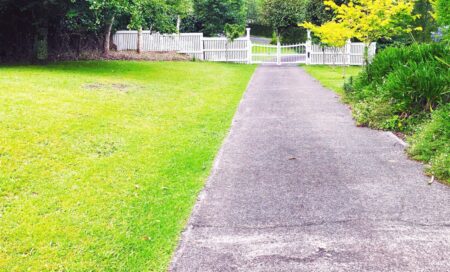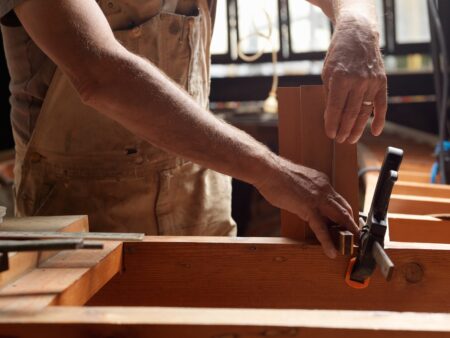Buying or building a home is one of the most exciting and nerve-wracking experiences! If you’re like most homebuyers, you’ve been saving up, scouring listings, and going to open houses for months or for some people, even years. Or maybe you haven’t found your perfect home yet and you’ve decided to build your own.
No matter what kind of home you’ve decided on, property taxes will be an essential part of your monthly payment. And with new construction, you might be wondering how are property taxes assessed on a new construction home.
Since taxes are based on the value of the property, which factors in the value of the area and surrounding homes, they can be a bit tricky to figure out on new construction. But that shouldn’t stop you from going forward with finding or building your dream home. We’re going to take a deep dive into the world of property taxes and help you know exactly what to expect with a new construction home.
How are Property Taxes Assessed on a New Construction Home?
When taxes are calculated on a home in an established neighborhood, the assessor will look at recent sales in the area to determine the market value of the home. If it’s a newer subdivision, they may also take into account the cost of building materials and the size of the lot.
However, with a new build that might not be in a neighborhood or have any comparable homes nearby, the process is a little different.
What’s the Assessment Process Like?
You may have heard people use the word appraiser and assessor interchangeably, but they have very different jobs. An appraiser is hired by the buyer or seller to determine a home’s value, while an assessor is employed by the government to calculate property taxes.
An appraiser looks at one home at a time and determines its specific value based on its features, like square footage, number of bedrooms, and upgrades.
An assessor looks at the entire neighborhood or area to determine property taxes for all homes in that location. When it comes to new construction, the assessor will often come out during different phases of the building to reassess and update the value as it nears completion.
Can I Estimate What My Property Taxes Will Be?
While it’s not possible to know for sure what your property taxes will be on a new construction home, there are some simple steps you can take to estimate them.
Research the tax rates in the area where your new home is located. Then, look at comparable homes in the area and see how much they are paying in taxes. You can find that information on the county assessor’s website.
Will I Be Paying More for Taxes on a New Construction Home?
It’s difficult to say whether you will be paying more in taxes on a new construction home, as it ultimately depends on the value of your property and the tax rates in your area. However, one thing to keep in mind is that some communities offer tax incentives for building energy-efficient homes, which could potentially lower your overall taxes. Be sure to ask about any potential incentives when purchasing a new construction home.
There’s a possibility that as your area becomes more developed, the true value of your home increases or decreases. In that case, your property taxes may also change over time. But you shouldn’t worry too much about that—it happens to everyone.
Will Property Taxes Affect How Much I Qualify For on my Mortgage?
You may have heard of PITI. It stands for principal, interest, taxes, and insurance—all the things that go into your monthly mortgage payment. So yes, your property taxes will factor into how much you qualify for on a mortgage.
That being said, it’s important to remember that property taxes can change over time and won’t necessarily stay the same throughout the life of your loan. So don’t let them deter you from finding the perfect new construction home for you and your family.
What Can I Do to Lower My Property Taxes on a New Construction Home?
One option is appealing your assessment if you feel the value they have placed on your home is too high. This process can be time-consuming and there is no guarantee of success, but it may be worth looking into if you feel your taxes are unjustly high. Another way to potentially lower your property taxes is by taking advantage of any available tax deductions or credits for homeowners.
The good news is that many areas offer tax breaks for new construction homes while they are being built and for a certain amount of time after completion—so you might catch a break during those early years!
What If My Payments are Due Before the House is Assessed?
If you’re buying your new construction home before it’s been officially assessed, chances are your property taxes won’t be set until after the fact.
In the meantime, you may have to pay estimated taxes based on the value that an assessor estimates for your property. It’s important to keep up with those payments to avoid penalties or interest. Once your home is officially assessed and your property taxes are determined, any overpayments will be refunded to you.
The bottom line is that yes, property taxes can be a little tricky when it comes to new construction. However, with a little research and planning, you can be prepared for any potential setbacks along the way.
Build Your Dream Home
There’s not always a perfect fit out there for everybody—sometimes you’ve got to build your own if you want your dream home! When we decided to start with Build On Your Land, we saw a need for honest, expert home builders.
You deserve a premium build with no hidden fees. From excavation to the hardware in your kitchen, we commit to a cost and deliver on time. If you’ve decided to build a home in South Carolina, give us a call! We’d love to walk you through our beautiful floor plans and help you bring your dream home to life.








